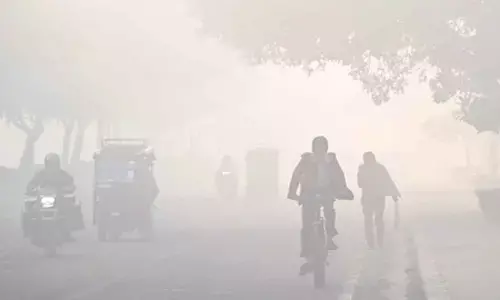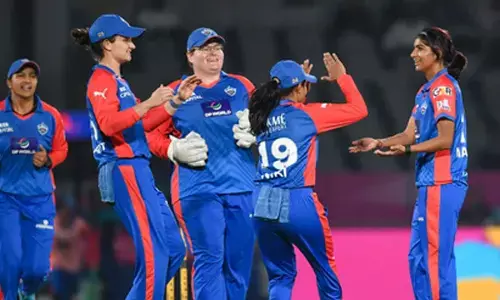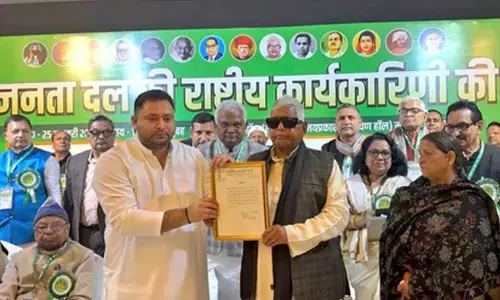Arthritis patients not at extra risk of getting Coronavirus

Dr. Yogesh Preet Singh
“The COVID-19 outbreak has resulted in uncertainty and anxiety in patients with arthritis
Bengaluru: "The COVID-19 outbreak has resulted in uncertainty and anxiety in patients with arthritis. This anxiety is predominantly acute for those with the indistinct "underlying conditions" that render them more vulnerable to the infection or severe complications. People with arthritis are expected to fall into this group because of their underlying diseases and the therapy used to treat them," Dr. Yogesh Preet Singh, HOD & Consultant – Rheumatology, Manipal Hospitals Old Airport Road stated.
Singh further said there is limited data about the effects of arthritis medications on infection risk. "However, current evidence shows that people taking arthritis medications (disease-modifying antirheumatic drugs - DMARDs including biologics) are not at a higher risk for getting Covid-19. In fact, experts believe that well-controlled disease activity may help decrease the risk of infection, so in that regard, medication is beneficial. With respect to precautions, individuals with arthritis have to take the same precautions as everybody else namely - hand hygiene, use of face mask, maintaining physical distance, avoiding crowded places, avoid touching face / nose / eyes," he explained.
Arthritis is not bracketed to a specific age group and even children can be affected by it.
"There are more than 100 types of arthritis and the age group depends on the type of arthritis. Arthritis affecting children is called juvenile idiopathic arthritis. Arthritis that is seen commonly in adults are rheumatoid arthritis and spondyloarthritis. Both these conditions are known to affect 1 % of the population each. Spondyloarthritis tends to affect individuals between ages of 18 and 45 years. Rheumatoid arthritis can affect any age. But it is more likely to start in the middle age. So contrary to popular belief arthritis is not a condition that exclusively affects the elderly. The cause for these arthritis is not known," Singh explained.
Delving further into the subject, he told The Hans India, "The immune system is the protective system of the body protecting the body from external threats. In these conditions the immune system of the body becomes hyperactive and starts attacking its own healthy cells. Osteoarthritis is a condition which tends to affect the elderly.
It is due to wear and tear of the cartilage in the joints. Cartilage acts as cushion between the bones in your joints and with aging this gradually deteriorates. Cartilage is a firm, slippery tissue that enables nearly frictionless joint motion. Eventually, if the cartilage wears down completely, bones will rub resulting in symptoms of joint pain. There are multiple risk factors for osteoarthritis and include - increasing age, female gender, joint injuries, genetics, joint deformities and repetitive stress to the joint."
While both the genders (male and female) can be affected Singh stated that in some conditions Arthritis is common among females.
"Rheumatoid arthritis and osteoarthritis are common in females. Rheumatoid arthritis is typically 2 to 3 times more common in females when compared to males. Whereas, Ankylosing spondylitis is more common in males when compared to females. Both males and females can be affected by arthritis," he said.
Dr Nischit Consultant Orthopedician at ACE Suhas Hospital opined that the burden of the disease in India is very much underestimated.
"Prevalence in India is around 39 %. More predominantly seen in middle-age women more than men. The risk factors are sedentary lifestyle, obesity and smoking. Rheumatoid arthritis one of the types of arthritis needs special attention as early diagnosis and treatment can save a joint from irreversible damage. Also rheumatoid arthritis is associated with premature atherosclerosis & coronary artery disease," he said.














